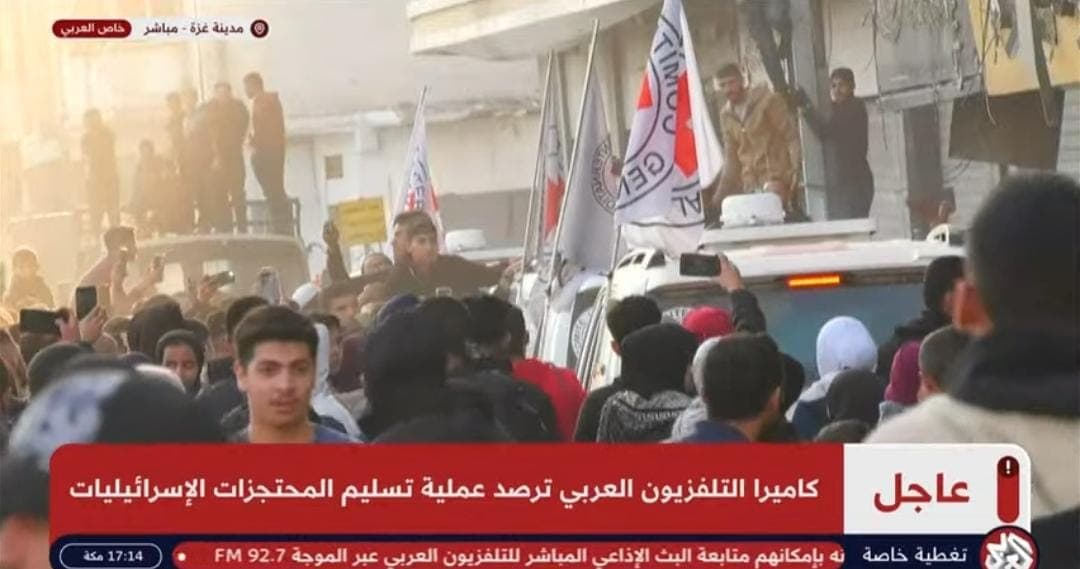Thank G-d
Photo Essay: The Red Cross have our hostages
We have made a deal with devil. But getting our hostages back is all we can think about right now.

Israeli forces are on standby as the hostages Romi Gonen, Emily Damari and Doron Steinbrecher have been handed over to Red Cross officials.
All three hostages were able to exit the vehicle and enter the Red Cross vehicle on foot, even after sixteen grueling months of captivity.
Security forces are positioned with vehicles around the designated transfer point at Palestine Square, ready to respond to any potential security threats during the handover process. Military officials have implemented heightened security measures to ensure the safety of the hostages during this critical operation.
Initial reports of the hostage transfer taking place along the Netzarim route were a deliberate misdirection by Hamas, according to Abu Ali. Gaza sources now confirm the handover is set to occur at the al-Saraya junction in Gaza City.
Hamas supporters and operatives have already gathered at the new location, apparently staged to create a backdrop for the hostage transfer event.
This marks a significant change from previously announced plans, with the transfer now moved to a more central urban location.
Military helicopters are standing by at a Gaza border base to fly them to medical checks after an emotional reunion with their families near Re'im, where they will meet their mothers.
Emily Damari, a 28-year-old British-Israeli woman kidnapped during Hamas's October 7 attack, Romi Gonen and Doron Steinbrecher are finally coming home.
Damari, who was "shot in the hand, injured by shrapnel in the leg, blindfolded, bundled into the back of her own car, and driven back to Gaza" according to her mother, will be freed along with Doron Steinbrecher, 31, and Romi Gonen, 24. Steinbrecher was taken from the same kibbutz as Damari, while Gonen was abducted from a music festival.
The ceasefire finally took effect at 8:15am, nearly three hours behind schedule, after Hamas provided the names of today's hostages to mediators. In exchange, Israel is expected to release 90 Palestinian prisoners, including women and children.
Israeli Prime Minister Benjamin Netanyahu had refused to begin the ceasefire until his government received the hostages' names. After the list arrived, his office confirmed they were "checking the details" and contacting families, adding that four more living female hostages would be freed within seven days.
The delay in starting the ceasefire, which Hamas blamed on "technical field issues," led to continued fighting Sunday morning. The Israeli military reported striking "terror targets" in northern and central Gaza, while Palestinian emergency services said at least 13 Palestinians were killed and dozens injured in these final strikes.
Sources familiar with the situation suggested Hamas's communication difficulties stemmed from their avoidance of mobile phones to prevent detection by Israeli forces. The militant group has struggled to coordinate between its leadership within Gaza during the ongoing conflict.
The morning's violence included tank fire in Gaza City's Zeitoun area and strikes on the northern town of Beit Hanoun, forcing residents who had returned in anticipation of the ceasefire to flee once again.